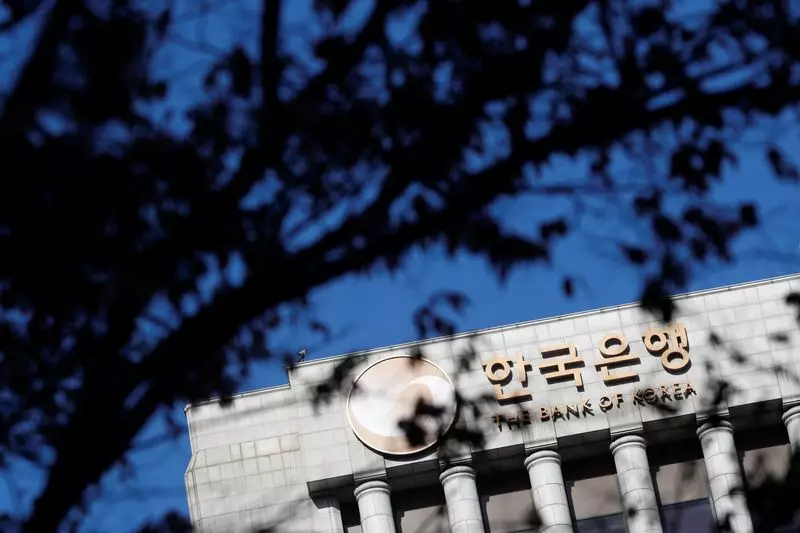In a surprising turn of events, the Bank of Korea (BOK) has taken decisive action to cut interest rates as South Korea grapples with mounting economic pressures and geopolitical uncertainties. This unexpected maneuver marks a significant moment in the nation’s monetary policy, aimed at stimulating growth amid a faltering economic landscape and concerns regarding international trade dynamics stemming from the re-election of former U.S. President Donald Trump.
The Bank of Korea made headlines by reducing its benchmark interest rate to 3.00%, marking the second consecutive cut in a sequence that few economic analysts anticipated. Out of 38 economists surveyed, only four predicted such an outcome, demonstrating the surprise element of this decision. The seven-member board of the BOK voted with a margin of 5-2 in favor of the cut, indicating that while there was some dissent, the majority favored a proactive approach to economic management.
Governor Rhee Chang-yong expressed the need for vigilance, indicating that the potential for further easing was on the horizon. The re-emergence of Trump as a prominent force in U.S. politics raises alarms about the competitive landscape for South Korean exports, amplifying fears around impending tariff challenges and disruptions to trade policies that are critical to South Korea’s economy.
The Economic Landscape
South Korea’s economy is primarily export-driven, relying heavily on stable international trade relations. The recent rate cuts are a direct response to a troubling economic narrative that saw the country narrowly avoid a technical recession in the third quarter with a mere 0.1% growth. Contraction in earlier periods coupled with sluggish recovery in private consumption and stalled exports has put immense pressure on government officials and the BOK alike to devise effective solutions.
Furthermore, the country has recorded a substantial trade surplus with the United States, amounting to $44.4 billion in 2023. However, the specter of tariffs looms large, particularly with major trading partners like China potentially facing significant tariff increases. As such, South Korea must safeguard its vital economic sectors, especially the semiconductor industry, which has been targeted for strategic support by the current administration.
The implications of Donald Trump’s re-election pose a substantial challenge for the South Korean economy, as existing and potentially new trade policies could alter the competitive landscape for exports. With Governor Rhee indicating a consensus among board members about the possibility of further rate cuts, there seems to be an urgency to not only stabilize the finance sector but also to rally support for domestic industries facing uncertain futures. Analysts predict that the BOK could implement additional cuts within the first quarter of the upcoming year, reflecting a proactive approach to imminent challenges.
In light of the diminishing growth forecasts and stagnant consumer spending, the South Korean government is contemplating the introduction of a supplementary budget to buffer the economy against further decline. The BOK has already revised its growth expectations downward, projecting an expansion of only 1.9% in 2024 compared to earlier estimates.
The evolving situation necessitates a close collaboration between the central bank and government officials to stabilize the currency and foster a more resilient economic environment. With the won emerging as one of Asia’s weakest currencies in 2023, maintaining exchange rate stability will be paramount to mitigating further economic difficulties.
Following the BOK’s announcement, there were notable reactions in the financial markets, exemplified by a rise in policy-sensitive three-year treasury bond futures, while the won weakened against other major currencies. Such fluctuations signal market uncertainties and underline the interconnectedness of monetary policies and global economic developments.
South Korea is at a crossroads where proactive monetary measures and fiscal policies are essential to navigating an unpredictable economic landscape compounded by geopolitical risks. The decisions made by the Bank of Korea and the South Korean government in the coming months will be crucial for steering the national economy towards stability and growth amidst an increasingly volatile global marketplace.

